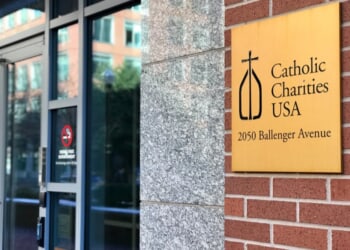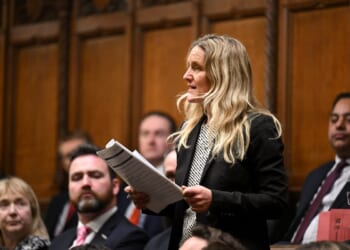Amidst the gloom, there was a good news story last week. The International Monetary Fund has declared that the “70s are the new 50s.”
The Daily Telegraph added:
“The world’s lender of last resort has said older people today are far sharper and stronger than they were 25 years ago, meaning they should stay in employment for longer. It released its findings after data from 41 countries revealed remarkable leaps in healthy lifespans. They found that someone aged 70 in 2022 had the same cognitive function as the average 53-year-old in 2000, placing them far ahead of the Noughties’ septuagenarians.”
In its report, the IMF states the research “underscores the importance of policies” that “increase labour force participation among older individuals”, adding:
“By leveraging these strategies, countries can harness the potential of the silver economy to boost growth and rebuild fiscal buffers amid demographic headwinds.”
Hurrah! Yet, in that case, is it not rather odd that after I celebrate my 60th birthday next year, I will be eligible (via a “60+ Oyster card”) to travel for free on the London Underground and London buses? Readers outside London might not regard this as terribly interesting. But you will be paying for it. According to Transport for London’s accounts, last year the Department for Transport chipped in just under a billion pounds. The “Non ring-fenced resource grant from the DfT used to fund operations” was £188.3 million. The “Non ring-fenced grant from DfT used to fund capital comes to £810 million.” Why should a hard-working 60-year-old Bolton taxpayer have to pay for both his bus fare and mine? You could argue that it is paid for via the Mayor of London, with £178 million from the Council Tax precept and over a billion from Business Rates. That strikes me as disingenuous. If the money was not lost on the concession, then the bailout from central Government would not be required.
For pensioners in London, those aged 66 and over, the free travel continues, though with a different scheme. The 60+ Oyster card is replaced with a Freedom Pass. This is funded differently – the 32 London borough councils pay TfL to provide it. The scheme costs around £350 million a year. It is rising sharply each year. So that’s an average of £11 million for each Council – though it varies considerably with population size.
Arrangements are coordinated with TfL on behalf of the London boroughs by an organisation called London Councils. It is sometimes claimed that it is necessary for the boroughs to retain their membership of London Councils to continue with this. That is not so. TfL would still have a motive to offer the deal to a Council that was not a London Councils member – indeed under the legislation, it would be difficult for them to refuse.
London Councils is a bureaucratic lobbying group that piles on other costs on top of the Freedom Pass. In the case of my Council, Hammersmith and Fulham, this comes to £1.2 million – including a basic sub of £161,958 and other payments to the London Councils Grant Scheme and a highly inefficient scheme for subsidised taxi fares.
Anyway, to return to the substantive issue; should these concessionary travel schemes continue? One obvious start would be to end the free travel for those below pension age for new applicants. In principle, the concessionary travel for pensioners is also a poor allocation of resources. It is better to give the pensioners the money and let them choose how they spend it rather than handing out freebies.
So how could a Council withdraw from the arrangement in a way that was practical and politically acceptable? The rules are that the funding which councils provide for the Freedom Pass comes from revenue from parking charges and traffic fines. That money is not supposed to go into general funds. So simply to scrap the scheme and use the savings for a Council Tax reduction might prompt some sort of challenge. There would also be the political problem that once people have been given a benefit of some kind there is indignation should it be withdrawn – though again to could be stopped for new applicants.
I propose a compromise. There are currently 1.2 million Freedom Pass holders across London – 37,500 passes for an average borough. As mentioned it costs £350 million a year – so around £292 a head. A Council could tell its pensioners:
“We have withdrawn from the Freedom Pass scheme. You will now have to pay full fare on all bus and tube travel. But we will be making a payment into your bank account of £292 a year. We will call this a Travel Allowance. But you will be free to spend this money as you choose.”
Designating the payment a travel allowance is a cunning wheeze to resolve the technical point of it being funded by traffic fines and therefore supposedly related to transport. But as with the Winter Fuel Allowance the pensioners would be able to choose how to spend it. Perhaps on Uber. Or going to the pub.
The example I have given would be revenue-neutral. But there could be savings. The allowance could be made payable to new recipients only once they reached 70. That would reduce the cost by about a third. Or the payment could be made £200 a year rather than £292. Those local authorities who wish to vary it in this way should be allowed the flexibility to use any savings to reduce Council Tax. For example, Hammersmith and Fulham raised £74 million from Council Tax last year. If it withdrew from London Councils and just paid a modest travel allowance to older pensioners that would allow for a reduction of, say, ten per cent reduction in Council Tax. Of course, pensioners would be among those who would benefit from lower Council Tax bills.
The change would also be a good discipline for TfL. They should rely on passengers actually choosing to pay a fare. Incidentally, this should also include a stop to the fare-dodging youths who routinely crash through the barriers unchallenged – which not only means a loss of revenue, but sends a message that the louts are in charge. If TfL ceased to be subsidy junkey, it would have to think more about providing a safe, attractive and efficient service. Scrubbing the graffiti off the tube trains would be good a start.
A new settlement is needed for getting about the capital. Both pensioners and the transport system should be allowed greater financial independence.


![NYC Tourist Helicopter Falls into Hudson River, Siemens Executive and Family Among Those Killed [WATCH]](https://www.right2024.com/wp-content/uploads/2025/04/NYC-Tourist-Helicopter-Falls-into-Hudson-River-Siemens-Executive-and-350x250.jpg)






![Green Day’s Cringe Trump Diss Ends in Fire and Evacuation [WATCH]](https://www.right2024.com/wp-content/uploads/2025/04/Green-Days-Cringe-Trump-Diss-Ends-in-Fire-and-Evacuation-350x250.jpg)
![Red Sox Fan Makes the ‘Catch of the Day’ with Unconventional ‘Glove’ [WATCH]](https://www.right2024.com/wp-content/uploads/2025/04/Red-Sox-Fan-Makes-the-‘Catch-of-the-Day-with-350x250.jpg)






